One Quick Way to Practice Spelling Sight Words in Kindergarten
Learning to spell kindergarten sight words, let alone read them can be quite challenging for beginning readers. Here is a fun, kinesthetic way to help teach kindergarten sight words. Simply turn your students into letters of the alphabet and let them form the letters with their bodies! Building movement into lessons yields far better results than without it and for kinders – it’s much more engaging.
For this activity all you need is a little space… like spreading out just beyond your whole group teaching space carpet.
Oh yeah… and you need some *letter dust.*
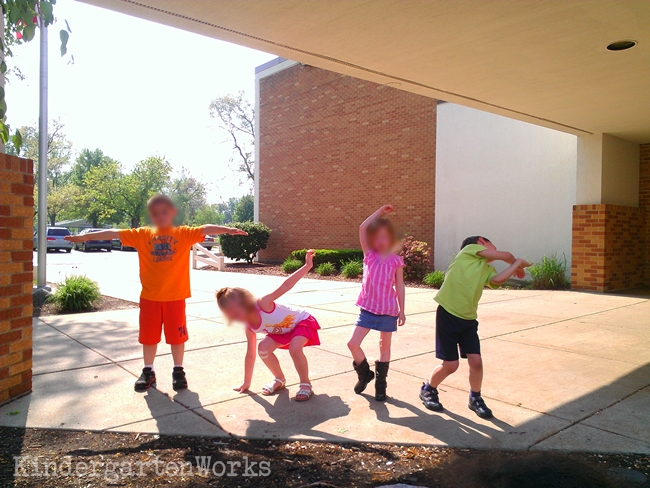
Making It a Weekly Thing
We normally build this activity into our weekly routine. Students will form each letter in our sight word(s) with their body as we sing a song that spells out the word. Normally, we’re using a familiar tune to spell out the word. They love getting up and moving and think it’s all generally very seriously-silly. I start by grabbing some very-serious and powerful imaginary *letter dust* from my pocket. It works in a similar way to fairy or pixie dust. I gently blow it from the palm of my hand across the entire group of kinders and they are instantly transformed into letters. (Think Letter Factory!)
We sing through at different speeds in order to practice multiple times. The faster we sing, the faster we have to form each letter. It’s great exercise!
For me, I just always know that we’re going to body-form words on Thursday. It makes my lesson planning easier and it works well as a review/reinforcement activity.
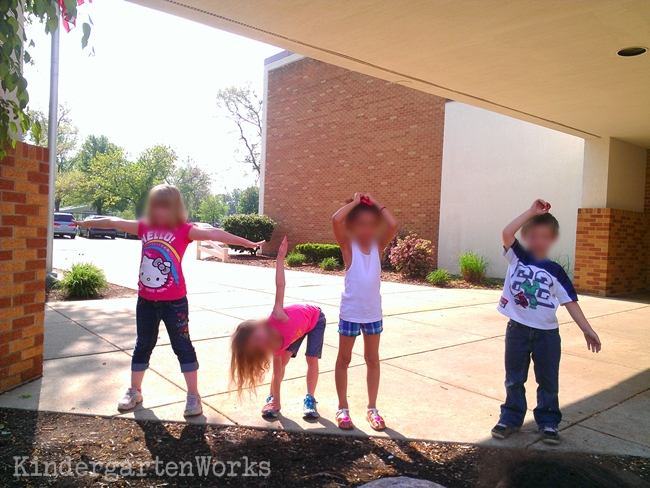
Changing It Up
On occasion, we’ll change it up by forming teams. Teams must “race” against each other to form the word. This time it’s different than our normal routine. Instead of each student spelling out each letter, they each pick a letter and form the word as a team.
It’s generally hilarious {for me}, frenzied and encourages planning in a small group with quick communication. After spelling one word or two words together, they have to mix up teams and work with others.
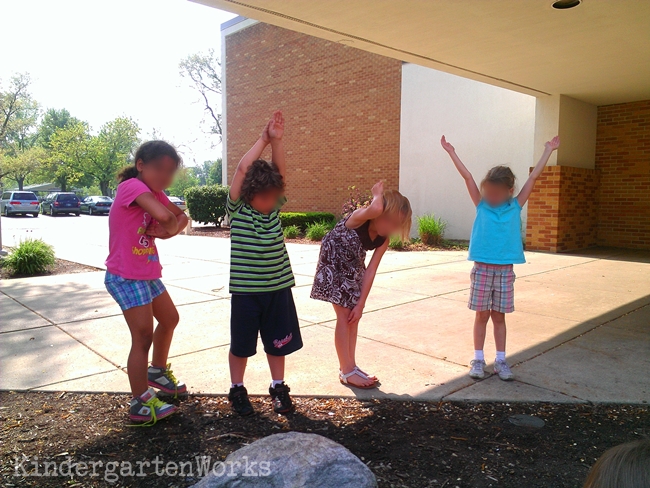
As these photos show, we are taking advantage of the nice weather and taking our learning outside. We are literally steps from the front doors of our school. We are “performing” our sight words for each other. It’s a benefit for them to see the words spelled by others from the viewing perspective, instead of the “being” perspective.
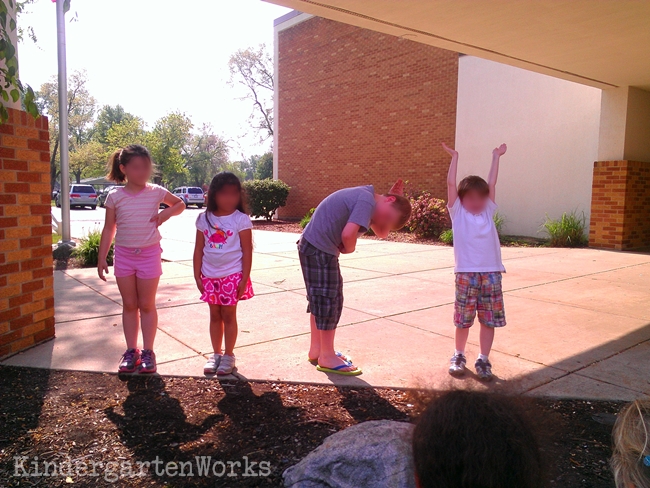
At the beginning of the year, I connect what we’re doing with our limbs and trunks to what we do with playdough. They are totally pumped by using playdough to form letters, so I simply use the playdough to model parts of the letter and we discuss which part of our body (head, trunk, feet) could play that role.
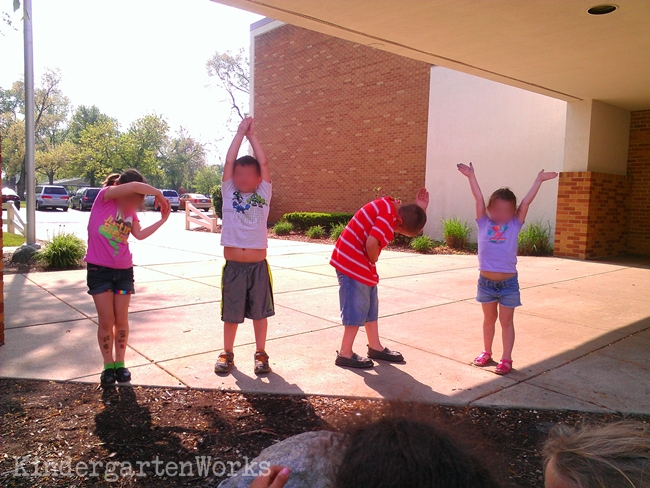
Seriously Silly Learning with Kindergarten Sight Words
Now, I will tell you that after doing this for years their a’s are always backwards to the viewer. I don’t know why. I just chalk it up to a kindergarten perspective thing… a developmental one and we move on. It’s fun to get creative! When I come to a letter that isn’t exactly straightforward, I often invite a few students to model what they think it should look like. This encourages others with less letter knowledge to have something to refer to before we begin.
Silly as it may be, we’re seriously learning and working.
I believe that movement shouldn’t just be a brain break but that it should be built in to as much learning as possible in today’s classroom!
Check out how this idea plays into teaching a sight word each week with a simple routine.
If you like what I do here on KindergartenWorks, then be sure to subscribe today. I look forward to sharing ideas with you weekly.
More Kindergarten Sight Words
- Chicka Chicka Boom Boom freebie coconut tree name pinning page {printable}
- A Day in the Life… in Photos
- Kindergarten Pirate Unit: Math and Literacy – Arrrgh
- playdough makes the best word work center
More Movement in Kindergarten
- how to roll out student work spaces {alternative seating}
- Your kinders are under the tables! {alternative seating}
- getting rid of my teacher desk {alternative seating bonus}

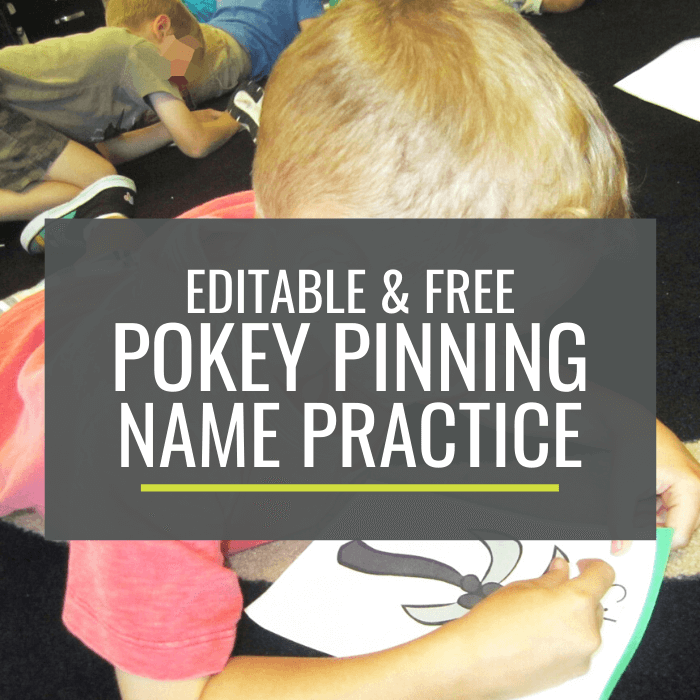
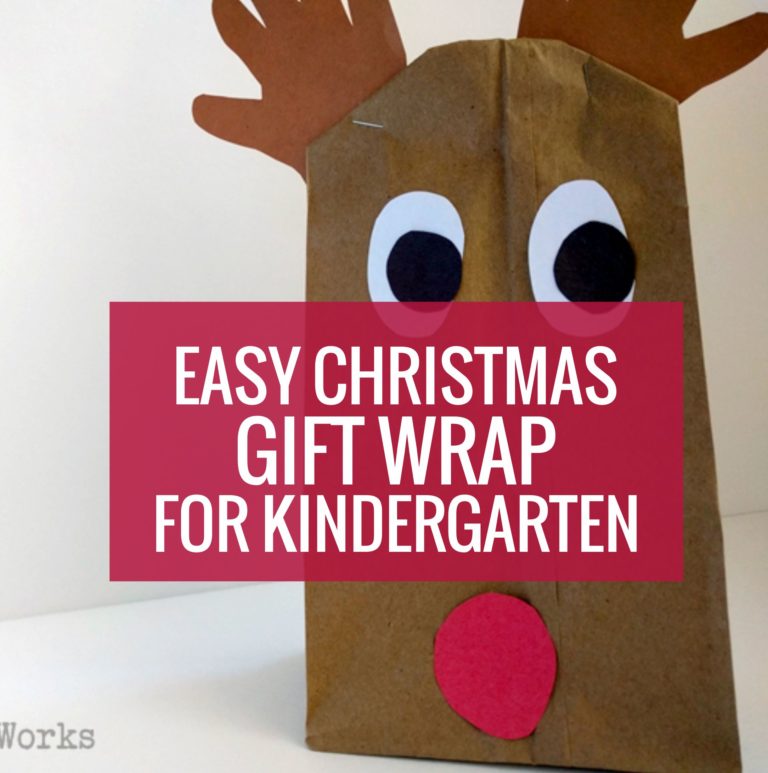
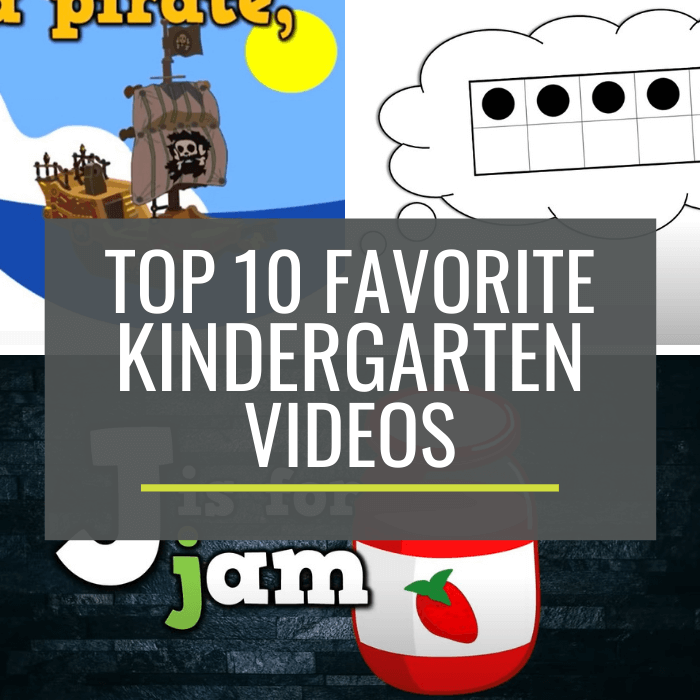

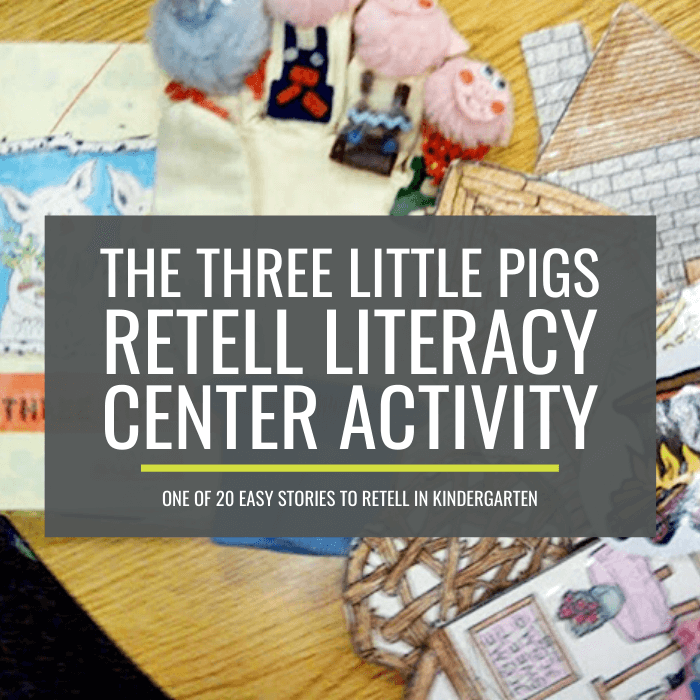
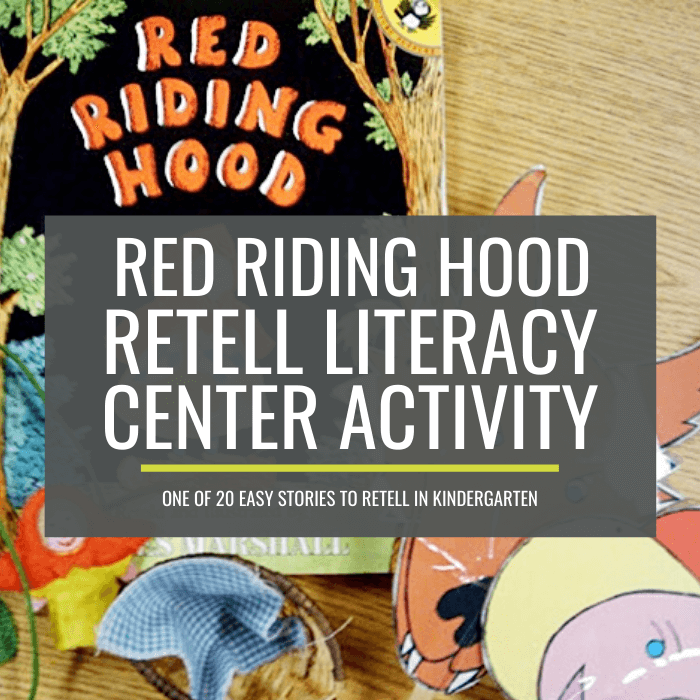
My daughter is a kinesthetic learner and would learn best through activities like this! I wish her teacher did more of this kind of thing!
Thanks Emma for the encouragement – it’s fun to try at home too!
– Leslie